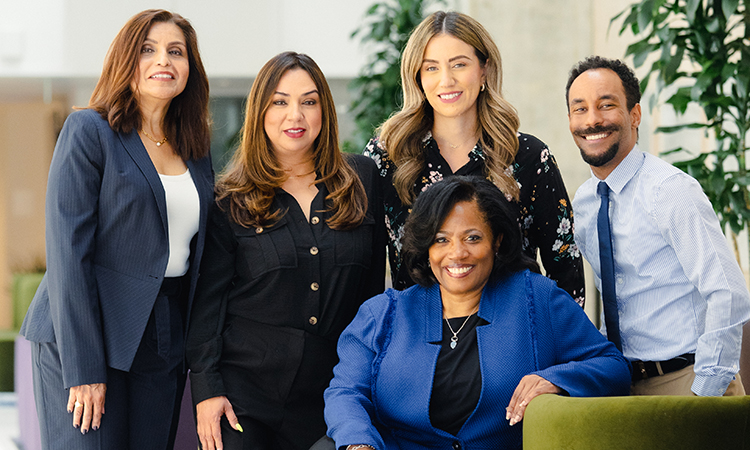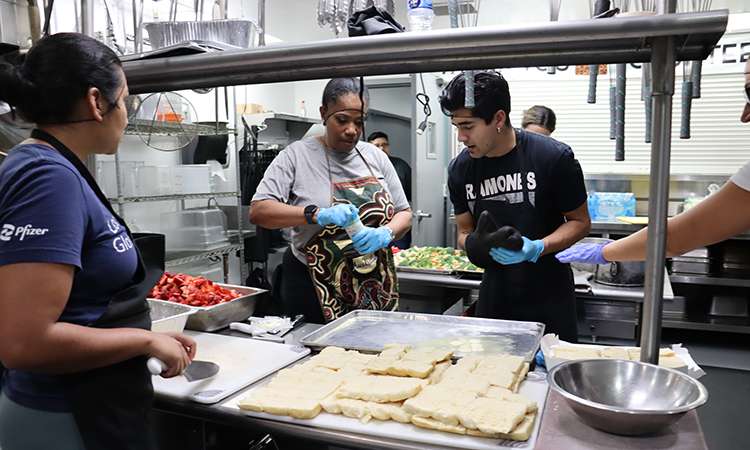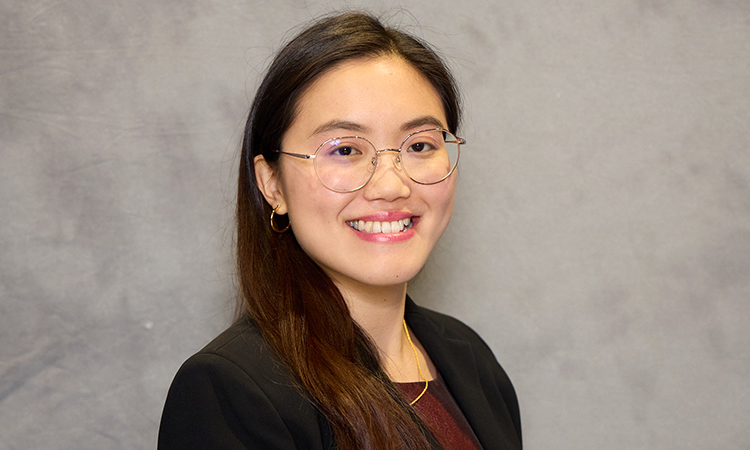Lori Carter-Edwards, PhD, MPH, Kaiser Permanente Bernard J. Tyson School of Medicine Associate Dean for Community Engagement and Government Affairs and acting Director for Health Equity Research Core, shares what drives her passion for community engagement, academic medicine, and service as a pioneering leader.
Who has inspired your journey in academia?
I’m a third-generation educator. My mother was a math teacher before she became a head counselor and went on to become an assistant principal in the Los Angeles Unified School District (LAUSD). Also, my maternal grandmother, who went to college in the 1930s when women weren’t going to college, let alone Black women. My mom benefitted from my grandmother going into education, so I feel that I have a responsibility to honor the generation of my ancestry by being the best I can possibly be in the education space whether it’s in the community, the academy, or beyond. I have a responsibility to represent the hard work that they did to open doors for me to be where I am today.
I also think about women like Alexa Canady, who was the first African American woman to become a neurosurgeon. I learned of her from the book, “I Dream A World,” by Brian Lanker. Seeing that tabletop book, her picture struck me. There are people like her with this quiet strength who are pioneers, and they know that there are moments when they have to be on that journey alone. While they have the support, being a pioneer means that there are things that you have to think about alone and things that you have to do alone because you have to be in that space of doing your calling, and only you know your calling. No one else can make a decision about your calling for you, you are the only one who can make that decision. That’s what leadership is about. Part of a leader's job is to be able to think alone.
It is also important for leaders to know when to collaborate with others in order to drive impact for the collective. There are times when we need others to help us move the needle forward. As the old adage says, “if you want to go far, go together.”
As African Americans, sometimes we’re alone as a people, but sometimes we’re alone individually. We have to remember that our Black history is not just for this month but it’s every day that we live. This should be a time when we’re reflecting collectively on creating goals together because we live this every day. Think to yourself, how do I show up for the people that matter to me, and how do I create a space that encourages them to be a pioneer? Pioneers who serve create other pioneers if we do it right. Leaders who serve create other leaders who serve, if we do it right.
This is why it is people like my mother, grandmothers, Alexa Canady, and some of my peers who most inspire me as pioneering leaders in their own right.
Why is community engagement work important to you?
For me, community engagement is important because, at the core of me, I have the need to serve. Serving brings me joy. One of the most recent pieces on community engagement that warms my heart is in the National Academy of Medicine on “Assessing Meaningful Community Engagement.” One of the seven impact stories is of my team and I working with a faith-based organizational network that we built with the community. We worked with 17 churches including their pastors, a food minister, and a health minister, and talked about concept mapping, social entrepreneurship, and how they could serve their communities. As a result, they started to share information and their learnings with one another. After our work together, this led to a network of 118 faith-based organizations in 18 months with their own 501(c)3 classification doing the work to impact their communities.
This is what community engagement is all about. How do you take your agency, match it with someone else’s agency, to create something even greater, and then step away and watch the magic happen? Our role as engagement partners is to simply facilitate. We are here to not only create capacity with community partners but also to help change infrastructures that inhibit being able to work together to promote health. We want to help break down silos.




